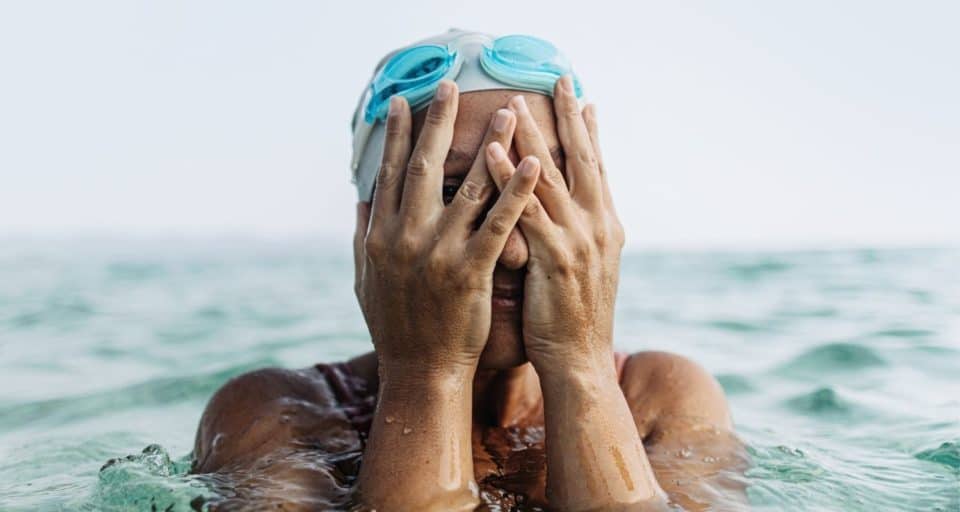- A Closer Look at Common Myths About Hearing Loss - May 7, 2024
- The Impact of Pets on Emotional and Hearing Health - April 26, 2024
- Strategies for Coping with Single-Sided Deafness - April 16, 2024
It’s almost outdoor swimming season again and that mean dips in lakes, bathing in streams, and splashing in pools. Some of us may even be lucky enough to swim in the ocean and frolic in the waves. However, with the joy of swimming comes the frustrating and often painful swimmer’s ear. Now that the heat is here, let’s explore everything you can do to avoid dealing with swimmers’ ears this season.
What is Swimmer’s Ear?
Swimmers ear, also known as otitis externa, is an infection that affects the outer ear canal, from the eardrum to the outside of the head. Most commonly it’s often when water remains in the ear, creating a moist environment bacteria or fungi can easily grow. Otitis externa can be incredibly painful, causing swelling and reddens around the ear. As it progresses it can cause a full feeling in the ear and even inhibit hearing. It’s fairly common affecting 10% of all people at some point in their life. The Centers for Disease Control and Prevention (CDC) reports that “swimmer’s ear leads to about 2.4 million doctor visits each year and is responsible for nearly $500 million in annual health care costs.”
However, with proper precautions, it can easily be prevented.
Keep Your Ears Clean and Dry After Swimming
After you swim, be sure to dry your ear canal thoroughly. This can best be achieved by tipping your head to one side, allowing all the water to run out, and then doing the same on the other side. For those who may suffer from otitis externa all too often, it may be helpful to put a drop of rubbing alcohol with a drop of white vinegar in each ear. This can dry up any moisture which can’t escape on its own. It’s best to do this sparingly, however, as continual use can cause your ear canal to suffer from dryness, which in turn increases the risk of ear infections.
Proper Earwax Hygiene
You are most likely aware of the sticky stuff in your ears. Its’ commonly called earwax, but it’s not wax at all. Also known as cerumen, while earwax may be unfavorable to you, it plays an essential role in the health of your ear canal. It functions as an antimicrobial agent. When small cuts or lesions occur in your ear canal cerumen protects the cut and keeps it from getting infected.
In addition, earwax works as a sort of conveyor belt for dirt and debris which is collected throughout our day and gets trapped in the ear canal. As we chew or talk, our own jaw movement channels earwax out of the ear and the dirt and debris with it. In addition, cerumen repels water, making it essential in the prevention of swimmer’s ear. Many people make the mistake of doing everything they can to eradicate earwax from the ear, but this is often a sure way to cause dryness, itchiness, and infection. Avoid cotton swabs. In truth, your body cleans your ears without you having to do anything. Simply enjoy a warm shower to loosen up earwax and wipe it away with a soft damp washcloth.
Wear Earplugs While Swimming
If you are experiencing repetitive infections after swimming you may want to start wearing earplugs in the water. This will keep water and infection out of your ear. Be sure to wear earplugs for swimming that create a watertight seal, rather than make the common mistake of attempting to wear foam earplugs for blocking out sound. Surprisingly it happens more often than you’d first believe!
Consider Using Ear Drops
If all else fails, many ear drops can aid in the prevention of swimmer’s ear. Many recommended ear drops may already be in your medicine cabinet or even kitchen cabinet.
- Rubbing Alcohol: As mentioned before, rubbing alcohol helps to evaporate water that may be lingering in the ears.
- White Vinegar: Another popular treatment is white vinegar which can affect the pH inside of the ear canal.
- Olive Oil: If your ear feels too dry, olive oil may just do the trick to lubricate, loosen impacted earwax, and repel water away.
- Hydrogen Peroxide: Many people enjoy using hydrogen peroxide as well to kill bacteria in the ear and fight infection. Many enjoy the fizzy feeling that hydrogen peroxide produces however, it can also kill beneficial bacteria as well making it a solution only in a pinch. If you do use hydrogen peroxide, make sure to dilute it with warm water.
Schedule a Hearing Exam
If you are suffering from chronic ear infections it could affect your hearing, however, there is a chance that your hearing loss could be from a completely different cause. To get to the bottom of your hearing issue, make sure to visit us for a full hearing exam today.

